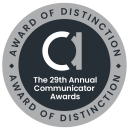If you’re wondering whether email marketing is still an effective way to reach customers or not, you’re not alone! With the rise of new digital marketing technologies over the years, it is good to question the importance of email marketing and whether you will be making it part of your marketing strategy.
So, is email marketing effective? The quick answer is, yes, absolutely, email marketing is alive and well! In fact, according to recent studies, 66% of marketers believe that email is still one of the most effective parts of their digital communication. And it’s easy to see why – with 91% of Americans using email, it’s a great way to reach a large audience quickly and easily. Also, according to MailMunch, email marketing is, in general, better at driving traffic and direct conversions than social media – with engaging with your audience. Despite this, many businesses still aren’t taking advantage of its potential.
If you are wondering why email marketing is still important, read along with us as we explore what makes email marketing effective and how you can start using it to reach your target audience. We’ll also look at some tips for creating successful email campaigns. So if you’re ready to learn more about email marketing, you’re in the right place!
Benefits of Email Marketing and How to Do it
Email marketing is an excellent way to keep in touch with your customers and drive traffic back to your site. It’s an amazing tool for building relationships,revealing your loyalty and increasing sales. But like all digital marketing strategies, it’s important to understand how email marketing works before you start designing your campaign.
There are a few key factors around what makes email marketing effective. First, people are already used to receiving emails and they check their inbox frequently. Second, people trust emails more than any other type of advertising medium. And third, email provides a personal connection with the sender that can’t easily be replicated anywhere else in the marketing world.
Here are five steps to help you get started:
1) Define your goals and target audience. What do you hope to achieve with your email marketing campaign? Who is your target audience? Once you have these answers, you can start developing messaging that resonates with them.
2) Create a captivating subject line. Without a good one, your email may never be read. We could write an entire article around this one topic alone but in essence: keep the subject line short and sweet, create a sense of urgency, maybe include an offer, tell them what’s inside, make your readers feel special with, like, a “my gift to you” or “you’re invited” and also, don’t be afraid to get quirky and add a pun, such as “swipe right on us.”
3) Draft the content for the body of your email. This content is key to keeping subscribers engaged. Always keep the tone consistent with your brand voice. Be conversational and make sure each email is different in it’s topic and content. You can send several different types of emails: newsletter, product updates, special offers, etc.
4) Choose a relevant email list. To ensure your emails have maximum impact, you need to send them to the right people. Hopefully you have your lists organized in a CRM software like HubSpot to make tagging, sorting and sending easier.
5) Create follow-ups and schedule them to go out automatically. If you have the ability to add triggers, all the better. You can create customized follow-ups. For instance, whenever a reader opens the email but doesn’t purchase, they get their own special follow-up that encourages them to come back and consider the product/service again. And then for someone who does end up purchasing, the approach will be different. You might want to thank them again and ask them to leave a review. You can even have an email for when people leave things in their cart; a reminder with a link they can click on that takes them to the cart.
Measuring the Success of Your Email Marketing Campaign
This part can be tricky, but it’s important to track key metrics of your email campaigns so you can make improvements where necessary. The goal is to establish a clear ‘conversion rate.’ ROI (Return on Investment) is what measures the overall cost effectiveness of the email campaigns you’re running and to get that figure here are just a short list of items to be watching: you’ll want to factor in your open rate, click-through rate, unsubscribe rate, complaint rate, conversion rate, bounce rate, list-growth rate and forward/share rate. By pulling all the numbers on these, you can get a pretty detailed report and use the information to know which things are working and which things aren’t.
We hope we have given you a clear understanding of the importance of email marketing so you can decide if you will start using it. It really is a great way to reach out to your customers. However, if you’re not doing it right, you could be wasting your time and money. Thankfully, by partnering with an experienced marketing agency like us, you can ensure that your email campaigns are well-designed and effective. We have the expertise and tools to help you create emails that will grab your customer’s attention and get them engaged with your brand. We definitely aren’t ones to overlook the crucial role of email marketing in digital marketing. Contact us today to learn more about our services and how we can help you achieve success in this arena.


























